
In March, people and families affected by FTD will have the opportunity to speak directly to representatives from the U.S. Food and Drug Administration (FDA), providing input based on their personal experience that will help the government evaluate the effectiveness of potential new FTD therapeutics.
Established by the FDA in 2012, Patient-Focused Drug Development (PFDD) meetings allow the FDA to better understand the perspective of people living with specific diseases. Uniquely formatted to engage and encourage the participation of disease communities, these meetings present an extraordinary opportunity to directly engage with the federal agency that regulates every prescription drug that enters the treatment market.
For those impacted by FTD, the March 5 PFDD meeting – which will be led by AFTD – will allow persons diagnosed, care partners, and others affected to share their journeys firsthand, providing insight into symptoms, daily life, and what they would value most in potential future treatments. This information will help the FDA to identify clinically meaningful outcomes for therapeutic interventions, which in turn could lead to new research and potential treatment targets.
The day-long meeting, which will be entirely virtual, will begin with AFTD Medical Advisory Council Chair Elect Bradford C. Dickerson, MD, presenting a clinical overview of FTD. Then, a session will focus on living with FTD, featuring live and pre-recorded comments from persons diagnosed, care partners, and others. There will also be two panel discussions on current and future FTD treatments, one focused on sporadic FTD and one focused on genetic FTD.
The meeting’s agenda will continue to be shaped in the months ahead, guided by a survey AFTD conducted in October, in partnership with the FTD Disorders Registry. More than 1,200 people took part in the anonymous survey, providing crucial data that will help the FDA better understand what is most important to you regarding potential treatments and participating in clinical trials. A livestream of the meeting will be publicly accessible – stay tuned to the AFTD website in the coming months for more information. We encourage you to contribute your perspective during the meeting, including through live polls, chat, and phone-in.
AFTD is working every day to build a future free of FTD. This meeting is a critical and important step to obtaining our goal, and your involvement is essential. Together, we can have a direct impact on the future course of therapeutic development, helping to bring hope to individuals and families facing this devastating disease.
Grassroots volunteers and FTD experts from around the globe joined AFTD to mark World FTD Awareness Week 2020 (Sept. 27-Oct. 4) with a wide range of activities designed to raise awareness, share information, and raise funds to help hasten a world free of FTD.
The week’s centerpiece was the World FTD Marathon, a series of interactive webinars that highlighted emerging FTD research, caregiving strategies, and perspectives from persons diagnosed, held on October 3.
A block of presentations emanating from Australia kicked off the Marathon. Experts from the Royal Hospital Melbourne and the University of Sydney’s Brain and Mind Centre shared information on the behavioral and language changes that can occur in FTD, as well as recent research findings. Other Australian sessions focused on grief and loss in FTD, as well as the importance of finding support amidst the caregiving journey.
During the Marathon’s European block, researchers from the Netherlands, Italy, England and Finland shared their insights. Presentations focused on the search for FTD biomarkers, the ways in which COVID-19 has impacted caregivers and persons diagnosed, and the state of international collaboration in FTD research. Twice during the European block, researchers gathered to answer questions from viewers.
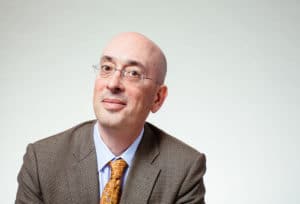
Adam Boxer, MD, PhD
The Marathon concluded with content from North, Central, and South Americas, curated by AFTD. The morning session was largely devoted to FTD science, including sessions on FTD genetics and genetic counseling as well as advancing research through the ALLFTD network and the FTD Disorders Registry. Adam Boxer, MD, PhD, of the UCSF Memory and Aging Center, presented a session on emerging FTD clinical trials.
The midday sessions were conducted entirely in Spanish. Presenters included Dr. Facundo Manes, an internationally renowned dementia expert and the president-elect of International Society for Frontotemporal Dementias, as well as Dr. Teresa Torralva and Dr. Julian Bustin of the INECO Foundation, a nonprofit organization based in Argentina that supports research into neurological disorders.
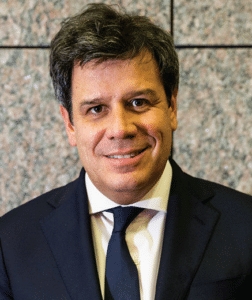
Facundo Manes, PhD
Later sessions featured a Q&A with members of the AFTD Persons with FTD Advisory Council, a newly formed group of persons diagnosed that informs AFTD’s work with their firsthand insight. Rita Choula, director of Caregiving at the AARP Public Policy Institute, fused personal and professional observations in a presentation about empowering the FTD caregiver. And a screening of the short film It Is What It Is was followed by a Q&A with its director, Joseph Becker, and three of the FTD care partners featured in it.
Every session of the Marathon is archived on World FTD United’s YouTube page at tinyurl.com/WorldFTDUnited.
During World FTD Awareness Week, a group of FTD grassroots volunteers launched the #FTDHotShotChallenge. Participants were encouraged to film themselves drinking a shot of hot sauce, then share it on social media to raise FTD awareness and crucial funds to drive AFTD’s work to end this disease. As detailed on page 11, the campaign raised more than $110,000!
With the support of a generous donor, AFTD placed two full-page ads in the New York Times during World FTD Awareness Week, along with ads on nytimes.com and accessible via mobile devices, promoting the FTD Hot Shot Challenge.
The ads told the stories of AFTD Volunteers and Hot Shot participants Amanda Dawson, Nicole Petrie and Caroline Dultz, all of whom have loved ones with FTD, as well as Jennifer Lee, who is living with primary progressive aphasia. “I drank a shot of hot sauce, and to be honest I usually can’t even eat Taco Bell because it’s too spicy,” Lee wrote in her Times ad. “I’ll do anything possible to fight this disease, and to leave a legacy for my children.”
Finally, AFTD’s flagship grassroots fundraiser, Food for Thought, kicked off during World FTD Awareness Week. This year saw many more online-only events than in years past, but still raised more than $120,000!
Food for Thought events took place in 21 states, plus Canada. To learn about some of the creative ways members of the AFTD community marked Food for Thought 2020, turn to page 10.
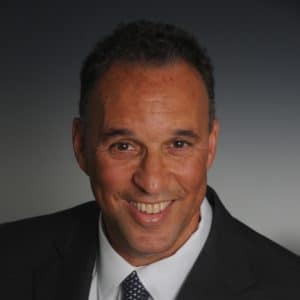
Chris Barrow
“What I love about my role at JPMorgan is that I can use 25 years of financial and business experience to accelerate scientific discovery,” explains Christian Barrow, an executive director of the Life Sciences banking team at JPMorgan Chase in Philadelphia.
A perfect example is the successful IPO that JPMorgan launched for Spark Therapeutics, a regional biotechnology company that developed a breakthrough gene therapy to treat blindness. “It’s gratifying to have a career where I can help people in such fundamental ways,” Christian said.
Christian, whose Board term officially began in September, hopes to continue to advance critical science in his new role with AFTD.
“FTD disorders destroy dreams and lives,” Christian said. “My goal is to amplify the connectivity between business and science to move research forward, toward effective treatments and therapies.”
Christian said that he is particularly interested in working with biotech and pharmaceutical companies as they attempt to develop potential therapeutics for FTD. “We want to sit at the table with as many potential partners as possible,” Christian added.
He also mentioned his admiration for the FTD Disorders Registry, a joint project of AFTD and The Bluefield Project to Cure Frontotemporal Dementia. The Registry is a secure electronic database that allows persons diagnosed, caregivers, family members, and friends to share their FTD stories. Collectively, these stories can help fuel future research and lead to effective treatments.
Christian lives in the Philadelphia area, with his wife, Vinette, and two college-age daughters, who attend McGill University in Montreal and the University of Pittsburgh
AFTD Introduces New Staff
AFTD has significantly bolstered its staff with several key hires, targeted specifically for maximum impact in implementing our 2019-2022 Strategic Plan. Dr. Penny Dacks is our new Senior Director of Scientific Initiatives. With a PhD in neuroscience and significant experience developing strategy and collaborative partnerships in neurological diseases, Penny brings key experience to lead strategy for AFTD’s research programs and the FTD Disorders Registry. Esther Kane has joined AFTD as our first Director of Support and Education. She brings clinical, educational and managerial experience, along with a passion for quality care for those living with neurological diseases. Finally, Anzhela Matsyshen is our new Digital Marketing Manager; she brings strong technical expertise across strategic content and digital development, as well as market research and analytics.
2021 AFTD Education Conference to Be Held Online
This spring, in response to the ongoing COVID-19 pandemic, the 2021 AFTD Education Conference will be held virtually. More details, including the date of the event, will be announced in the coming weeks. Be sure to check the AFTD website for more information as it becomes available.
Persons Diagnosed Committee to Inform AFTD’s Work
AFTD has formally chartered a Persons with FTD Advisory Council. The newly formed council will help to ensure the insights and wisdom of people living with FTD are considered in the development of AFTD’s policies, programs and services. The Advisory Council is an evolution of the informal “Think Tank” of persons diagnosed that had been informing AFTD’s work since 2015. For more information about the Council, write to info@theaftd.org.
Recent AFTD Webinars Offer Help for the Journey
Recent entries in AFTD’s Educational Webinar series have gone into depth on key elements of life with FTD. Among the subjects are care planning with essential legal documents, FTD and genetic testing, and dealing with grief and loss in FTD. Presented by experts in the field, the webinars are archived on AFTD’s website at theaftd.org/category/webinars, and also appear on AFTD’s YouTube page at youtube.com/TheAFTDorg.
“I think my mom did a lot of the early part of this journey on her own until we fully realized what was happening. We knew we had to help her.” - Laurlee Morrison, former care partner
 Laurlee Morrison remembers her mom, Earlene Leavitt, who was diagnosed with FTD in 2008 and passed away in 2016, as strong, resilient and determined. After losing her husband at a young age, Earlene raised their six children to adulthood and continued to work and live independently until she started to lose the ability to safely care for herself.
Laurlee Morrison remembers her mom, Earlene Leavitt, who was diagnosed with FTD in 2008 and passed away in 2016, as strong, resilient and determined. After losing her husband at a young age, Earlene raised their six children to adulthood and continued to work and live independently until she started to lose the ability to safely care for herself.
“We were so concerned to tell her she was going to have to move in with one of us – we had never told her what to do!” Laurlee says. “But when I asked her to come stay with me, she seemed almost relieved.”
Upon Earlene’s diagnosis, Laurlee found information through AFTD, joined a support group and gained a better understanding of the disease. Community support and access to vital resources gave her the confidence she needed to care for her mom with love and compassion.
Every day, AFTD works to help families like Earlene’s, by providing access to support groups, educational materials, our HelpLine, and Respite and Quality of Life grants. And every day, we work to build a future free of FTD by investing in innovative research. Donor support makes our work possible.
“Supporting AFTD is really important to me because of all of the support I received and all that we are continuing to learn about this disease, making it better for the next person,” Laurlee says. “The hardest journey of my life was to get my mom to the end of hers. I see my experience with AFTD as a gift I can share with others, and that is a silver lining of this journey.”
Laurlee and thousands more have found the support and resources they needed thanks to contributions from our generous donors. We hope that you’ll choose to support AFTD’s work with a tax-deductible donation – helping our organization improve the quality of life of people affected by FTD and drive research to a cure. Simply visit theaftd.org and click on the Donate+ button at the top of the page.
AFTD and The Alzheimer’s Drug Discovery Foundation (ADDF) have awarded four new research grants, totaling $3.4 million, to advance the science of FTD and hasten the development of novel treatments.
“This kind of commitment provides critical support for funding research that examines the multiple biological pathways thought to cause these diseases. Our four new research awards are prime examples of this,” explains Susan L-J Dickinson, AFTD CEO.
The awards were announced in late September, during World FTD Awareness Week 2020 [see page 1].
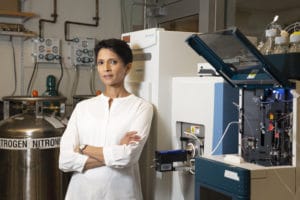
Judith Steen, PhD, Harvard Medical School
Judith Steen, PhD, Associate Professor of Neurobiology at Harvard Medical School, received an award through ADDF’s Diagnostics Accelerator. She will develop a blood test to distinguish between tau and TDP-43 protein accumulations – biomarkers that are fingerprints of FTD and other neurodegenerative diseases. “Proteomics, the study of proteins, is an important avenue of FTD scientific investigation, one that AFTD has supported for a long time,” said Debra Niehoff, Ph.D., AFTD Research Manager. “This area holds much promise for future diagnosis and treatments.”
Dr. Steen’s lab has pioneered methods to identify different proteins with the highest level of accuracy. Using a blood test, a physician could make a differential FTD diagnosis and enroll individuals in the right clinical trials: a significant step toward determining which therapies may offer hope.
The drug rotigotine is commonly used to treat Parkinson’s. But when Giacomo Koch, MD, PhD, and his colleagues at the Santa Lucia Foundation in Rome ran a clinical trial that repurposed rotigotine for Alzheimer’s patients, they discovered improved cognitive function for those with mild-tomoderate disease. Now, through a grant through the TreatFTD Fund, Dr. Koch will launch a study with rotigotine to learn if persons with behavioral variant FTD can benefit. Other newly funded research includes the work of Emiliano Santarnecchi, PhD, and a team from Beth Israel Deaconess Medical Center, who will explore if a low-intensity brain stimulation device can modify FTD symptoms. Dr. Santarnecchi also received an award through the TreatFTD Fund, which was made possible by generous multi-year commitments from the Samuel I. Newhouse Foundation and the Lauder Foundation, Leonard Lauder, and Ronald S. Lauder.
“Every day, we stay strategically focused to advance research with the most potential to improve quality of life for those with FTD – and ultimately, to eradicate this insidious brain disease,” said Penny Dacks, PhD, AFTD Senior Director of Scientific Initiatives.
Dieter Edbauer, MD, and colleagues at the German Center for Neurodegenerative Diseases in Bonn are developing a treatment using immunotherapy to target the C9orf72 mutation – a common genetic cause of FTD and ALS. Dr. Edbauer’s award was made through the Accelerating Drug Discovery for FTD Fund.
Since 2016, supporters of AFTD have gathered in New York City for the annual Hope Rising Benefit, which in its first four years raised nearly $8 million to advance AFTD’s mission.
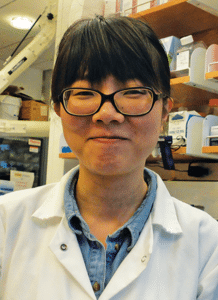
Ming-Yuan Su, PhD, 2019 AFTD Basic Science Postdoctoral Fellow
Though concerns about the ongoing pandemic prevented Hope Rising from taking place in person this year, past Hope Rising chairs and committee members, seeking to capture the event’s momentum, mobilized a fundraising campaign to engage previous years’ attendees and donors. Their hard work raised $1.4 million, enabling AFTD to strengthen and build upon our capacity to provide help and hope for families affected by FTD – qualities made more essential by the challenges brought on by COVID-19.
Discovery, Inc. organized and produced a digital program, which featured special appearances from members of the AFTD community. Jennifer Lee, who is living with primary progressive aphasia, and AFTD Board Chair David Pfeifer, whose wife Cathy was diagnosed with ALS and FTD in 2014 and passed away in 2016, shared their perspectives of living with FTD, exemplifying the personal impact that AFTD has on those affected by this disease.
Ming-Yuan Su, PhD, AFTD’s 2019 Basic Science Postdoctoral Fellow, shared her passion for neurology and how support from AFTD has helped advance her research on the C9orf72 gene, which she hopes will drive future treatments for FTD and related diseases.
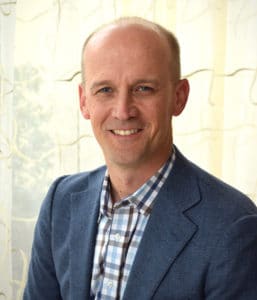
AFTD Board Chair David Pfeifer
As in previous years, journalist Paula Zahn, whose mother lived with a form of dementia, hosted the presentation, which includes
messages of thanks and hope from AFTD volunteer and donor Donald E. Newhouse, Benefit committee members Anna Wintour and David Zaslav, and AFTD CEO Susan L-J Dickinson. The presentation concluded with a compilation of musical performances from previous years’ events.
We are looking forward to next year’s Hope Rising Benefit, scheduled for October 14 in New York City, where we plan to honor the many years of hard work and generous support of Mr. Newhouse.
AFTD is so proud of our committed, passionate, and energetic network of volunteers across the country. Even during the pandemic, volunteers are still making an impact and moving AFTD’s mission forward.
One such volunteer is Meghan Roscoe of Connecticut. For the past six years, Meghan contributed to AFTD’s mission by serving as a Food for Thought liaison and support group volunteer, and by doing community outreach. Her longevity speaks volumes, and AFTD is grateful for her dedicated service to the organization.
“After helping take care of my father and living through this horrendous disease, I didn’t want anyone else to face the obstacles my family did,” she said. “My hope in volunteering was that I could help others avoid some of the mistakes we made and guide them through this chapter of their lives.”
Meghan is accomplishing what she set out to do when she joined AFTD’s volunteer network in 2014. Throughout her years of service, Meghan has met many caregivers and says she is “honored that they have shared their personal journey with me.”
For Meghan, the most rewarding part of volunteering is “hearing support group members say ‘thank you’ and knowing I’ve had a beneficial impact in such a difficult time. It’s fulfilling to be able to make this transition easier in any way possible.”
“As one of our longest standing Food for Thought liaisons, Meghan goes above and beyond, forming bonds with those she interacts with and dedicating her time and commitment to advance AFTD’s mission,” said AFTD Grassroots Events Coordinator Brittany Andrews. “In her leadership role, she empowers volunteers by assisting them with our flagship fundraising and awareness campaign.”
AFTD Volunteer Coordinator Jeni Cardosi added, “AFTD is so grateful for Meghan’s valuable contributions over the past six years and the lives she has touched along the way. She has made a difference for so many affected by FTD and is a model volunteer for others to follow.”
Throughout the pandemic, AFTD has been working to help our dedicated Support Group Volunteers move to a virtual option. Today, most support groups are now accessible via dedicated AFTD Zoom accounts that have been bolstered with additional security measures, ensuring your conversations remain confidential.
“Until our group feels comfortable meeting in person again, Zoom is the best alternative we have,” one volunteer said. “We had been meeting via telephone, but it is so nice that everyone can see each other again. It’s so important to continue to connect in a way that is safe for all of us.”
Charles from North Carolina expressed gratitude for AFTD’s help in getting the Zoom accounts set up. His group “had lots of interaction and was easy to access for participants,” he said.
AFTD Support Services Manager Bridget Moran-McCabe led the charge to help support groups remain active through the pandemic. “Those affected by FTD were already feeling isolated before COVID-19 hit, so providing them with a platform to meet virtually is incredibly important. I am so proud of our Support Group Volunteers for coming together and stretching themselves to learn Zoom on behalf of their group members.”
FTD is a challenging disease and COVID has brought even more difficulties to our community. Having a place to process, learn to adapt, cope and remind each other that we are doing a great job is a necessary function of support groups right now. If your support group is currently not meeting in person, we welcome you to take advantage of this technology to gain much needed support online.
Care partners and caregivers can visit the Find Support Near You section of theaftd.org to learn more. And if you are a person living with FTD, you can find information about our national Zoom groups by contacting our HelpLine at info@theaftd. org or 866-507-7222 for more information.
Food for Thought 2020
AFTD’s eighth annual Food for Thought campaign saw 40 events in 21 states (plus Canada), and raised over $120,000! Below are the events that raised $2,500 or more:
It’s Electric:
Steve Bellwoar, a Pennsylvania-based AFTD Board alumnus, hosted the seventh annual Colonial Electric Food for Thought event virtually this year by sharing a video message of himself and AFTD’s CEO Susan Dickinson, and asking his past attendees to consider continuing supporting AFTD during this difficult year. Steve matched his contributors’ donations with a donation of his own to local food banks. The event raised $44,793 and counting as of press time, bringing the grand total to $539,915 raised over the past seven years— continuing its title as our flagship Food for Thought event.
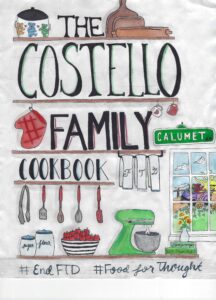 Family Cookbook:
Family Cookbook:
Each day during Food for Thought, Colleen Franzreb and the Costello family of Massachusetts posted family recipes and an anecdote of their loved one living with FTD, Ed “Big Time” Costello. Through their online fundraiser, they raised $14,306 for AFTD’s mission, and they plan to print a physical cookbook for family and donors to honor Ed.
Stories and Recipes:
Utah-based AFTD Support Group Volunteers Bonnie Shepherd and Catherine Sharpsteen, joined by support group members Ann Woodbury and Blaine Awerkamp, posted videos sharing the story of their loved one affected by FTD (along with their favorite meal), and asked friends and family to donate. Together, they raised $9,104.
Small Gatherings:
Debbie Gardiner, Audrey Goninan, and James Gardiner of Colorado held multiple events to honor their husband/father who passed away from FTD. The socially distanced outdoor event featured live music and a taco bar. Through the silent auction and their online fundraiser, they raised $5,391.
Special Delivery:
Molly and Chase Trimmer of Pennsylvania called on their family and friends to donate to their online fundraiser. In return, the two delivered homemade food along with educational brochures and awareness wristbands, raising $5,140 for AFTD’s mission.
Cooking for a Cure:
Lucy Carter of Tennessee hosted a Zoom cooking event where she sent ingredients to family and friends, encouraging them to cook with her while she shared her story of her husband, Kirk, and his FTD journey. She also raised more than $4,600 through her online fundraiser.
Pickles for Pick’s Disease:
Domenica Toscani, owner of Fishtown Pickle Project, and Laura Bolstad worked together to put together Pickles for Pick’s Disease to honor Niki’s father Dominic, who has FTD. They donated a portion of all pickle sales during the campaign and partnered with local Philadelphia businesses to raise $4,249 and pivotal FTD awareness in their local community and beyond.
Zoom Cooking Class:
Kyle Jackson of Illinois hosted an online cooking tutorial; forty family and friends made mushroom risotto along with him. While he cooked, Kyle shared his personal FTD story, gave FTD facts, and asked participants to donate to his online fundraiser, which raised $2,990 for AFTD’s mission.
AFTD’s 2020 Driving Hope Golf Tournament
AFTD added a special event to this year’s World FTD Awareness Week: a modified format golf tournament in response to the COVID-19 pandemic. Golfers across the country joined AFTD’s 2020 Driving Hope Golf Tournament by playing in small groups at one of our participating courses, or by playing their own club/ course and making a donation to AFTD.
We would like to take this opportunity and thank our generous tournament sponsors: Donald Newhouse, Kathy and Joe Mele, Angelo Gordon, Steven Newhouse and IWP Family Office for trusting the vision of this year’s event. We would also like to thank Michael Stowell for hosting an independent silent auction for golfers and nongolfers to partake in – all proceeds were donated to AFTD on behalf of the tournament.
Altogether, the event raised over $46,000 to advance AFTD’s mission! Thank you to everyone who joined this special event, with a special shoutout to the tournament’s committee: Daniel Hedaya, Brian Rose, Michael Stowell, Kathy and Joe Mele and Joan Berlin. We hope to see you all in-person next year.
In Memory of Karen:
Jeff Saksa of Michigan hosted a fundraising page in memory of his wife, Karen Saksa, who passed on October 13 from FTD. The page, created in lieu of flowers, raised $11,818.
Tee Time:
The fourth annual Crusade for a Cure Golf Tournament, hosted by AFTD Volunteer Ambassador Deb Scharper, was held on September 5 at the Sunny Brae Golf Course in Osage, Iowa and raised $6,800. Over the past three years, Deb’s tournament has donated a total of $29,800 to AFTD’s mission.
A Long Run:
Paul Petras planned to run the Shawnee 50 Mile Trail Run, an ultra-marathon through the Shawnee State Forest in Ohio to honor his girlfriend Serina Cline’s father, who passed away in 2012, 10 years after being diagnosed with FTD. While the race was canceled, Paul still ran 50 miles on his own, with Serina biking alongside him. The two raised funds for AFTD’s mission leading up to the race, resulting in a $5,895 donation.
Celebrating Carl:
The fifth annual CWM Golf Outing was held on July 11 in Michigan and raised $4,750. Hosted by the Moretti and Marcy families, the day celebrates and remembers Carl Moretti, who passed away from FTD in 2015. Over the past five years, the event has raised a total of $11,285 for AFTD and our mission.
Climbing Half Dome:
Carol Friedrichs, Russ Friedrichs, and Leia Lumsden of Washington climbed Half Dome in Yosemite National Park on July 17 to honor their husband/father, Keith, diagnosed with FTD at 58. Keith had completed the same hike in 2010 with his kids, and 10 years later, they honored him by completing it again and raising $4,697 for AFTD’s mission.
Sharon’s Strength:
Lauren Hafer of New Jersey created an online fundraiser to honor her mom, Sharon, who was diagnosed with FTD five years ago. She wanted to show her mom she is not alone on this journey. The fundraiser raised $3,668 while raising FTD awareness.
#EndFTD Masks:
Cindy Odell of North Carolina created an online fundraiser to sell custom #endFTD face masks. Her daughter generously sponsored the fundraiser so that all proceeds could be donated to AFTD. Cindy sold 150 face masks and donated $1,331.
Funding the Fight:
Model Nicole Petrie of Wisconsin has over one million followers on TikTok, where she raises awareness of FTD by sharing videos of her mom, who was diagnosed with FTD almost a decade ago. Through her fundraising page, she has so far raised $1,292.
Virtual Pilates:
Veronica Wolfe, owner of Jersey City Pilates in New Jersey, hosted a virtual Pilates for AFTD event on September 26. The event honored Veronica’s mom, who was diagnosed with FTD in 2018 at the age of 59. This donation-based class raised $1,223 for AFTD’s mission.
#FTDhotsaucechallenge
The #FTDhotsaucechallenge was a community-driven, grassroot campaign using social media and hot sauce to raise awareness for FTD and funds to drive AFTD's work to end this disease. Launched during World FTD Awareness Week, this virtual challenge saw participation from people around the world. Doing so was as easy as:
- FILM yourself taking a shot of hot sauce
- TAG five friends and challenge them
- DONATE to theaftd.org
In just the first few days the challenge raised $22,000 and caught the attention of an anonymous Hot Sauce Hero who pledged a 1:1 matching gift on Classy. That match was met in just six days, and the Mike Walter Catalyst fund celebrated by making a $10,000 milestone donation, with a pledge of another $10,000 donation once the challenge reached $90,000 - which it did in less than a week.
AFTD would like to thank everyone who participated in the #FTDhotsaucechallenge, especially Amanda Dawson and her team, who have been planning its success all year. The challenge has raised over $110,000 for AFTD's mission - making it the most successful independent campaign of its kind in AFTD history!
